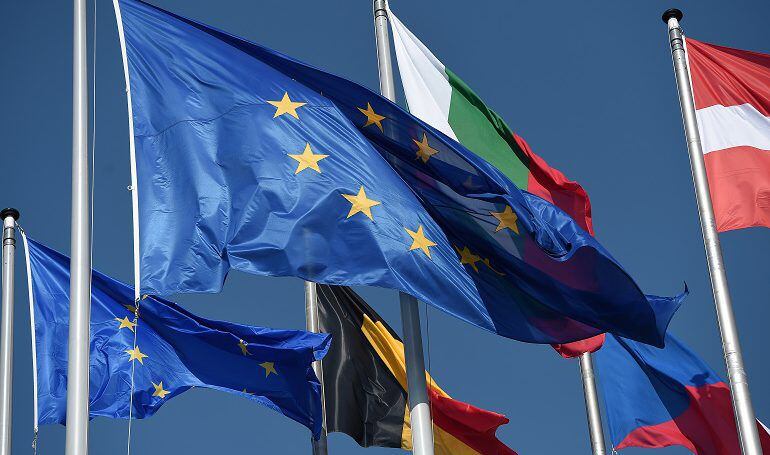
Weeks before a summit between European and Latin American countries that was supposed to hold a trade agreement long overdue, a legend on the wall of the headquarters of the EU Thursday showed why he would still be some way off.
“STOP EU-MERCOSUR”, wrote in giant letters the environmental group Greenpeace in the building where the 27 EU trade ministers were meeting. They evaluated the latest differences between what would be a great cooperation agreement for both the EU and the group made up of Brazil, Argentina, Uruguay and Paraguay.
And in addition to objections from environmentalists outside the building, it was clear that among the ministers, despite nearly 25 years of talks and a “agreement of principles” four years, there were complications for the final signature.
EU Trade Commissioner Valdis Dombrovskis tried to find a silver lining in the situation by saying that the July 18-19 summit would be “a very important milestone for those negotiations”without actually saying that there would be an agreement.
The pending objections were very clear
“France has set extremely clear conditions. It must be pointed out that, to this point, they have not been complied with.” said French Trade Minister Olivier Becht.
Like France, Ireland has large agricultural interests to defend against cheap South American imports. His trade minister, Simon Coveney, also evaded the possibility of reaching a deal before the summit.
He argued that the main challenge was “to ensure that there is no significant trade disruption to our meat products that are sold in the European Union. Ireland is the largest meat exporter in the northern hemisphere.
Of course, this is not what worries Greenpeace, according to which the proposed agreement would mean a sharp increase in the use of pesticides produced in the EU.
“We call for a complete stop to this toxic trade deal. For it to be sustainable, it would have to be totally renegotiated.” said Lis Cunha, a Greenpeace Trade activist.
“Like meat, like pesticides, like cars with internal combustion engines, as long as the agreement promotes these products, it doesn’t make the slightest sense”Cunha said. “It’s a bad deal. It is a disaster for nature and the climate.”
Last month, Brazilian President Luiz Inácio Lula da Silva traveled to Spain to try to promote the agreement.
Its approval would mean the integration of a market of around 800 million people, a quarter of the world’s gross product, and bilateral trade in goods and services worth more than US$100 billion.
The agreement would reduce customs duties and facilitate access for South American agricultural exporters to the European market, as well as for European manufacturers to the Mercosur countries.
Brazil and Spain will hold the presidency of their respective blocs in July and both want the agreement. In the EU, the election of Lula after the presidency of Jair Bolsonaro has raised hopes. Bolsonaro stripped powers of environmental authorities, encouraged illegal gold mining in indigenous areas and oversaw a surge in deforestation to its highest rate in two decades.
“We understand that the situation has changed a lot on the Mercosur side, and we have, for example, in Brazil a government that is very committed to defending the environment”said Spanish Commerce Secretary Xiana Méndez Bertolo.
Source: AP
Source: Gestion
Ricardo is a renowned author and journalist, known for his exceptional writing on top-news stories. He currently works as a writer at the 247 News Agency, where he is known for his ability to deliver breaking news and insightful analysis on the most pressing issues of the day.












